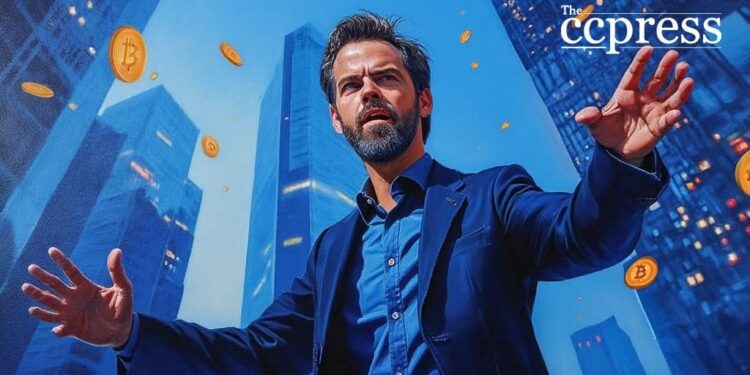- Jack Dorsey redefines Bitcoin as money, not crypto.
- Aims for zero-fee Bitcoin payments by 2026.
- Impact seen in merchant networks and financial markets.
Jack Dorsey, the CEO of Block, declared Bitcoin a currency rather than a cryptocurrency, aiming to integrate zero-fee Bitcoin payments on Square and Cash App by 2026.
Dorsey’s assertion could catalyze Bitcoin’s evolution into mainstream payment systems, affecting transaction dynamics and challenging its traditional role as a speculative asset.
Jack Dorsey, CEO of Block and former Twitter founder, has declared that Bitcoin is not crypto, bitcoin is money. His statement positions Bitcoin as a currency and not merely a speculative asset.
This pronouncement is backed by trials on merchant infrastructures like Square and Cash App. Dorsey’s goal is to implement zero-fee Bitcoin payments by 2026, emphasizing its use in daily transactions.
The announcement prompted immediate reactions in the financial sector. Market participants are evaluating the potential for Bitcoin to function as a standard currency. Industry experts are observing Bitcoin’s enhanced utility in transactional frameworks.
From a financial standpoint, Dorsey’s emphasis on currency usage may ingrain Bitcoin further into the mainstream. There is also speculation regarding regulatory implications and shifts in how Bitcoin is perceived globally.
Institutional responses include Tether’s donation to OpenSats for development. Stakeholders foresee changes in Bitcoin adoption patterns. Dorsey’s advocacy could boost merchant adoption, aligning with Bitcoin’s perception as a currency.
Historical precedents suggest increased regulatory scrutiny for similar initiatives, as seen with El Salvador’s legal tender move in 2021. Future market dynamics depend on infrastructure developments and regulatory acceptance by governmental bodies worldwide.
| Disclaimer: The content on The CCPress is provided for informational purposes only and should not be considered financial or investment advice. Cryptocurrency investments carry inherent risks. Please consult a qualified financial advisor before making any investment decisions. |



























